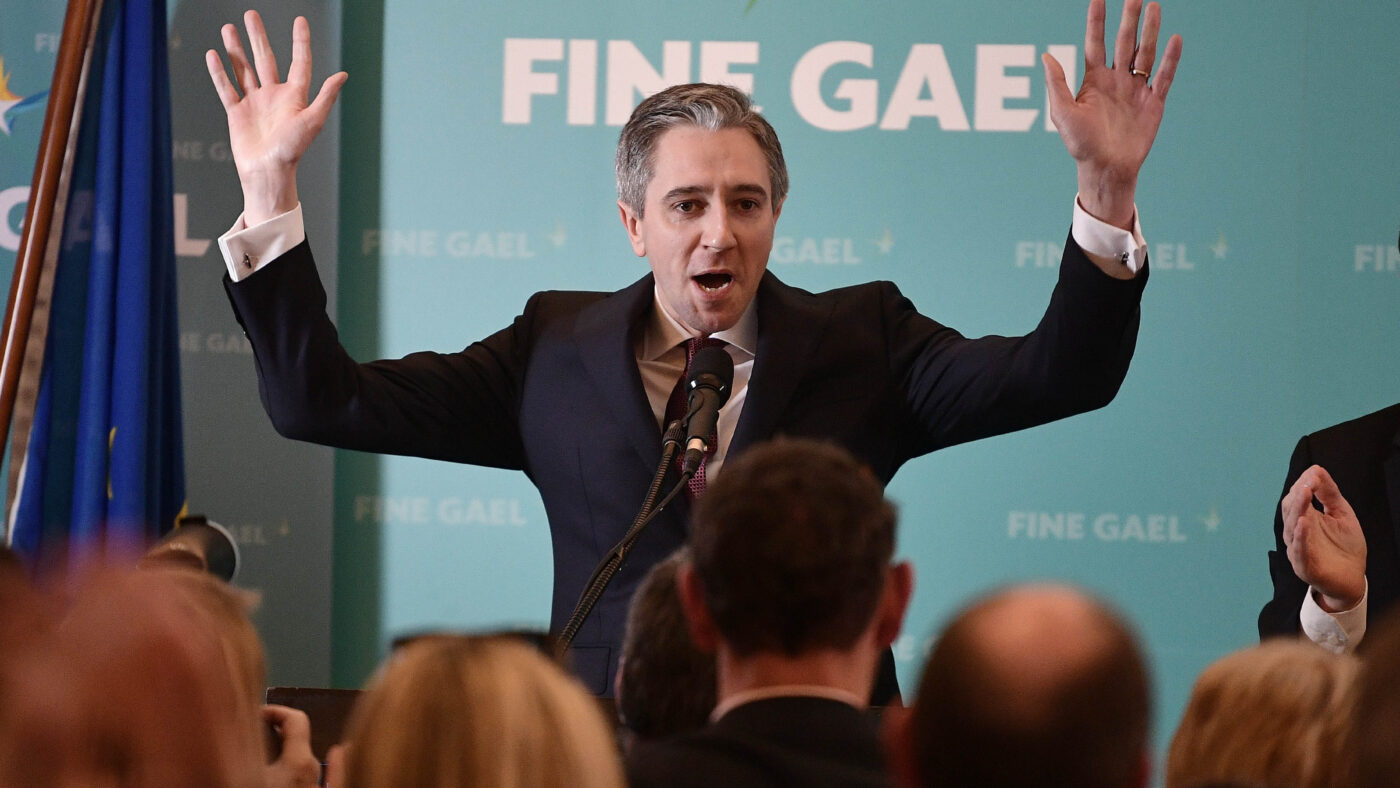The Republic of Ireland entered a new political era this week, as Fine Gael’s 37 year-old leader, Simon Harris, was elected Taoiseach, replacing Leo Varadkar.
The outgoing Irish Prime Minister announced recently that he would resign for unspecified ‘personal and political’ reasons. Mr Varadkar may have been coy about his decision-making, but it was surely influenced by two humiliating referendum defeats on proposed changes to Ireland’s constitution.
The electorate’s rejection of these plans, which would have introduced a broader definition of the family and removed references to women providing care in the home, was interpreted as a reaction against the Irish political class’s embrace of ‘woke’ ideology. In the Republic, there has been a backlash against an unprecedented upsurge in immigration, with many long-term residents convinced that their concerns are ignored because they jar with ‘progressive’ doctrines on open borders.
Mr Harris now has a chance to persuade people that he is listening more intently to their complaints than his predecessor. His government also has an opportunity to take a less confrontational approach to Britain and repair damaged relationships with Northern Irish unionists, who believe that Varadkar was particularly insensitive to their interests.
In one of his last engagements as Taoiseach this week, Varadkar visited the North South Ministerial Council in Armagh; a ‘joint secretariat’ that exercises limited all-island powers under the Belfast (Good Friday) Agreement. He told reporters that he hoped that ‘with hindsight’ unionists in Northern Ireland might ‘reassess’ the idea that he was a divisive figure during his two spells as southern Prime Minister.
That seems unlikely.
Mr Varadkar was withering about Sinn Fein during his time in office, speaking candidly about the party’s violent past and ambivalent attitude to criminality, but he also competed with republicans in courting anti-UK sentiment. Unionists accused him, for example, of using the threat of renewed IRA attacks to convince EU officials that they must not accept additional checks or infrastructure between the Republic and Northern Ireland after Brexit.
When Mr Varadkar replaced Enda Kenny as Taoiseach, in June 2017, most commentators believed that Dublin changed tack on Brexit. Mr Kenny was thought to be quietly exploring the possibility of a light-touch land border between the two Irish jurisdictions, but Varadkar’s focus was on forcing Northern Ireland into a ‘special status’ that kept it aligned with the Republic, even if that meant new barriers between the province and the rest of the UK.
Varadkar understood perfectly that unionists found the prospect of being cut off economically and politically from Great Britain horrifying. When Theresa May accepted the infamous ‘backstop’ in November 2017, the journalist Tom McTague quoted an EU source who said, ‘We just could not believe that Britain had accepted the text. We knew it would not be acceptable to the unionists’. But Varadkar’s objectives, like those of the EU negotiators, had little regard for political stability in Northern Ireland or the rights of unionists to play a full role in their own country.
The former Taoiseach’s insensitivity to the province’s constitutional status, and his tendency to resort to Brit bashing, were not confined to Brexit either. Varadkar interfered in the UK’s internal affairs regularly, suggesting, for instance, that, in the absence of Stormont, Dublin should enjoy a form of joint authority over Northern Ireland. That claim, unionists and Tory ministers pointed out, directly contravened the provisions of the Belfast Agreement, which prohibited the Republic from interfering in NI’s internal affairs.
More recently, his administration challenged the UK’s Troubles Legacy Act, which sought to prevent some prosecutions for historical crimes, at the European Court of Human Rights in Strasbourg. The Westminster government, which usually absorbs Dublin’s criticisms without complaint or comment, was finally provoked into anger by this decision. The Secretary of State for Northern Ireland, Chris Heaton-Harris, effectively accused the Republic of hypocrisy, demanding that it, ‘answer questions regarding its own record on tackling legacy issues in its own jurisdiction’.
While he expressed hopes that unionists would ‘reassess’ his record, Mr Varadkar used his last days in office to voice continued support for dismantling their UK home. He was responding to one of Dublin’s leading think tanks, which suggested that Northern Ireland’s absorption by the Republic would cost the Irish economy some 5% of GDP. Varadkar, in contrast, insisted that the question of Irish ‘unification’ should ‘never be about money’.
When his replacement as Taoiseach spoke to journalists this week, he at least offered some hope for an improvement in relationships with Ulster unionists and the Westminster government. On the constitutional debate, Simon Harris said, ‘It’s a legitimate aspiration for people in our country to want to see a united Ireland… That’s not where my focus and priority are right now and quite frankly, it’s not where I believe our focus and priority should be’.
That position is driven by pragmatism and it reflects the attitudes, if not the rhetoric, of other recent Prime Ministers in the Republic. Varadkar, while he clearly felt entitled to influence and authority in Northern Ireland, would likely have been horrified had his government been handed immediate responsibility for the province, or the financial costs that it entailed.
The key for Mr Harris will be matching his initial statements with a more constructive long-term approach to the UK generally, and Northern Ireland specifically. That would involve less Dublin interference in the province’s internal affairs, less anti-British posturing from the Republic’s ministers and a genuinely cooperative attitude to minimising the Irish Sea border.
Click here to subscribe to our daily briefing – the best pieces from CapX and across the web.
CapX depends on the generosity of its readers. If you value what we do, please consider making a donation.


